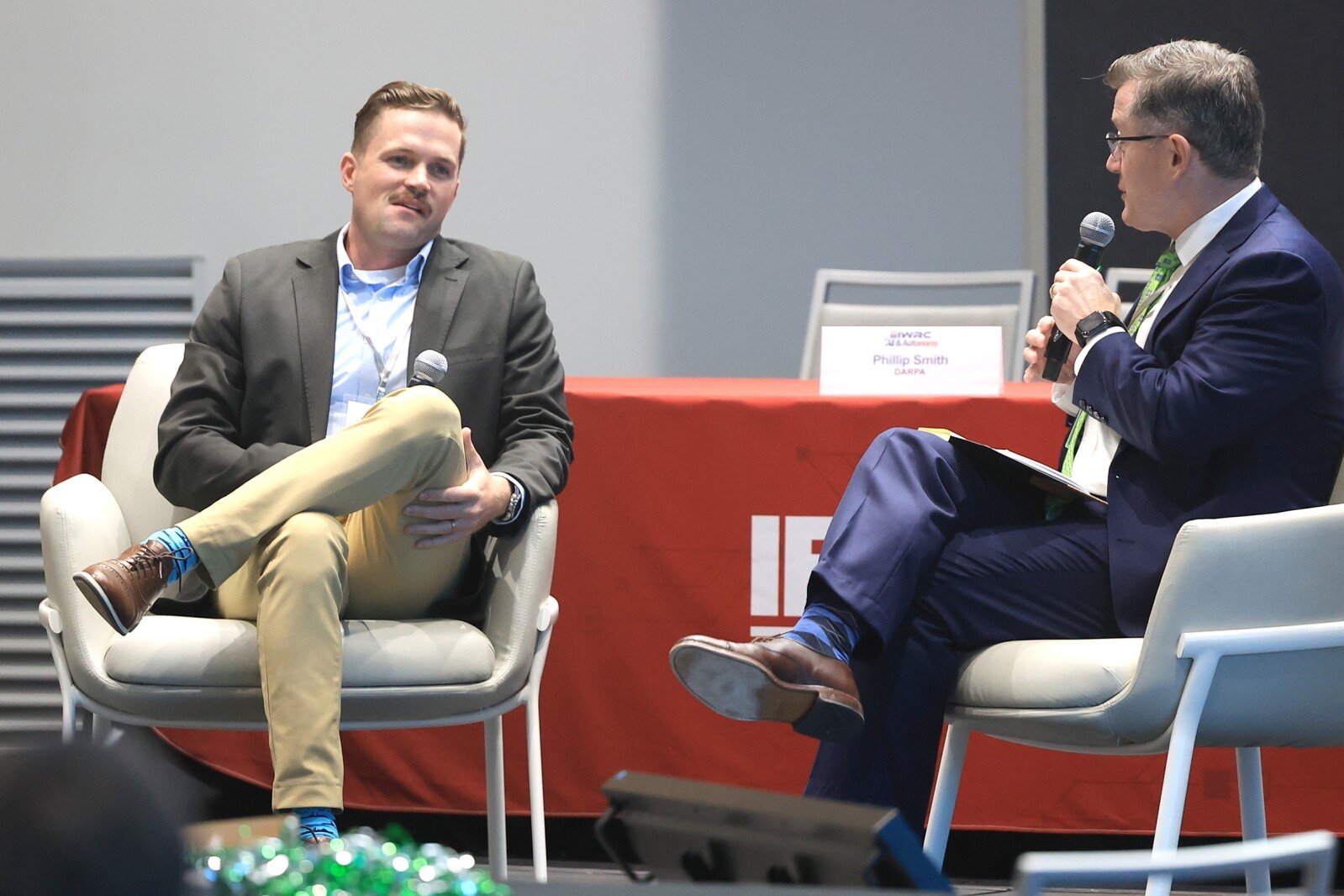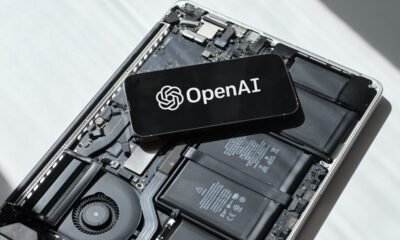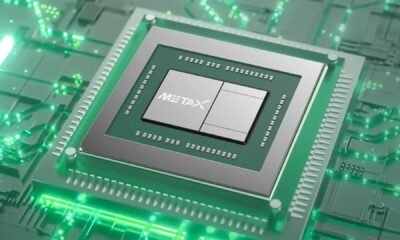Tools & Platforms
Exclusive: ALIGNMT AI raises $6.5M to keep healthcare AI in check – Endpoints News

Tools & Platforms
OpenAI to Launch AI-Powered Jobs Platform — Campus Technology
OpenAI to Launch AI-Powered Jobs Platform
OpenAI announced it will launch an AI-powered hiring platform by mid-2026, directly competing with LinkedIn and Indeed in the professional networking and recruitment space. The company announced the initiative alongside an expanded certification program designed to verify AI skills for job seekers.
The OpenAI Jobs Platform will use artificial intelligence algorithms to match candidates with employers based on demonstrated AI competencies rather than traditional resume keywords. The platform targets businesses seeking workers proficient in automation, prompt engineering, and AI implementation across various industries.
OpenAI is collaborating with major employers, including Walmart and Boston Consulting Group, to develop the platform’s functionality. Walmart, the largest private employer in the United States with 1.6 million workers, will initially provide free certification access to all US employees.
The Texas Association of Business plans to use the platform to connect local employers with candidates capable of supporting IT modernization projects, according to OpenAI’s announcement.
The company is expanding its OpenAI Academy, a free learning platform that has reached over two million users, to offer formal AI certifications. The program will cover skills ranging from basic workplace AI applications to advanced prompt engineering techniques.
Training and certification testing will occur within ChatGPT’s Study Mode, allowing candidates to prepare and complete credentials without leaving the application. OpenAI aims to certify 10 million Americans by 2030.
The initiative positions OpenAI against established players in the professional networking market. LinkedIn maintains over one billion members globally, while Indeed processes 27 hires per minute with 615 million registered job seekers.
The platform also competes with LinkedIn Learning’s educational offerings, potentially creating tension with Microsoft, OpenAI’s primary investor, with a reported $13 billion stake. Microsoft has previously identified OpenAI as a competitor in specific business segments despite their partnership.
Labor market data support OpenAI’s focus on AI competencies. Research by Lightcast analyzing over one billion job postings found that positions requiring AI skills offer salaries averaging 28% higher than comparable roles without such requirements. Jobs demanding multiple AI skills command premiums up to 43% above standard compensation levels.
The demand spans industries as companies integrate artificial intelligence into operations for task automation, data analysis, and product development. Employers increasingly seek workers capable of practical AI application rather than advanced technical programming skills.
The platform will allow employers to describe requirements in natural language, with AI systems identifying candidates who demonstrate relevant capabilities through portfolio work and practical experience. This approach differs from traditional keyword-based matching systems used by existing job platforms.
OpenAI’s system aims to surface candidates based on actual project experience and demonstrated competencies rather than resume optimization techniques commonly used on current platforms, the company said.
About the Author
John K. Waters is the editor in chief of a number of Converge360.com sites, with a focus on high-end development, AI and future tech. He’s been writing about cutting-edge technologies and culture of Silicon Valley for more than two decades, and he’s written more than a dozen books. He also co-scripted the documentary film Silicon Valley: A 100 Year Renaissance, which aired on PBS. He can be reached at [email protected].
Tools & Platforms
Grand Forks believes in the future of AI and technology, Mayor Bochenski says at AI and Autonomy Summit – Grand Forks Herald

GRAND FORKS — Grand Forks believes in the future of artificial intelligence and technology and is working to grow in those areas, Mayor Brandon Bochenski told an audience brought together to discuss AI and autonomous systems in Grand Forks and the state.
“We’re standing on the great work that’s happened before us, and just trying to enhance it and make it better,” Bochenski said. “There’s 10, 20 years of work that goes into Grand Forks being put on the map. I’m just grateful that we’re on the map today.”
His sentiments were echoed by others attending the summit, one of the Innovation, Workforce and Research Conferences put on by IEEE-USA, a technical professional organization. The event was held Wednesday, Sept. 10, at the University of North Dakota Memorial Union. Between discussions on state innovation, education, workforce, networking and investing in AI and autonomy, leaders in the fields of AI and autonomy spoke to its presence at UND, Grand Forks and North Dakota as a whole.
Scott Snyder, vice president for research and economic development at UND, mirrored Bochenski’s statement on the decades of work put into the community. UND has been on the “absolute cutting edge of uncrewed and autonomous technologies and systems for well over two decades,” he said. The university also has multiple private and university partners, as well as partnerships with the Department of Defense, National Aeronautics and Space Administration (NASA), Department of Homeland Security, Federal Aviation Administration and other federal government entities.
“UND is at the center of one of the most vibrant environments for the development and deployment of autonomous systems around the world,” Snyder said.
An example of engagement between UND and the federal government was a discussion between UND President Andrew Armacost and Phillip Smith, the program manager for the Tactical Technology Office at DARPA (Defense Advanced Research Projects Agency).
Smith admitted he doesn’t like the word “autonomy,” as he believes it acts similarly to words like “cyber” and “synergy” as jargon people use but don’t actually understand. Breaking down the subsections of autonomy and informing people is important, he said. When Armacost asked Smith what his definition of autonomy is, he said, “software that people don’t understand.”
“It is just an algorithm that cannot be explained to people until we get to general AI,” Smith said. “Humans actually don’t understand what is happening. … Machines are supposed to be serving humans, and humans don’t even know what they want, so that’s a really hard thing.”
Smith said DARPA is working with GrandSky, testing drones that will be able to find a ship at sea, and then orient and land on it without human connection. GrandSky is an aviation business park west of Grand Forks that specifically focuses on the UAS industry.
“That’s the program that we have out here in North Dakota testing, and it’s been really fun,” he said.
Armacost said each person in the room has the opportunity to engage with DARPA, including industry partners, university partners and others.
“They have a large number of avenues that they use to cooperate with their work on technology development,” he said.
The summit itself was the product of UND leaders interacting with IEEE-USA and having an interest in showcasing what the region is doing. Mark Askelson, vice president for research-national security, said he was at a Sioux Falls, South Dakota, summit with Ryan Adams, the dean of engineering and mines, and spoke with some IEEE-USA staff about possibly holding an event in Grand Forks. Askelson said it’s an opportunity to show what the region is doing to more people who don’t know about it. It also is helping forge new connections.
“Despite the fact that we are nationally recognized, I would argue in some of these areas, there’s still a lot of people that don’t know about us,” he said. “They don’t understand some of the things that we do, so that is a great opportunity to bring those people here so they can see us. And, in my experience, once we can get somebody on the ground to see what we have going on, the light bulb goes on for them. That creates more opportunity for us to work with them and for us to innovate.”
Tools & Platforms
Cruz to introduce proposal for regulatory AI sandbox program within OSTP

Senate Commerce Committee Chairman Ted Cruz said he would introduce legislation to establish AI sandboxes to allow companies “room to breathe” without running up against regulations.
Cruz announced that proposal as well as a legislative framework for AI policy ahead of a Wednesday hearing before the Subcommittee on Science, Manufacturing, and Competitiveness on the administration’s recent AI Action Plan. The concept of regulatory sandboxes were among the more than 90 policy recommendations outlined in that document.
“Under the Sandbox Act, an AI user developer can identify obstructive regulations and request a waiver or a modification, which the government may grant for two years via a written agreement that must include a participant’s responsibility to mitigate health or consumer risks,” the Texas Republican said during the hearing. “To be clear, a regulatory sandbox is not a free pass. People creating or using AI still have to follow the same laws as everyone else.”
The proposal comes as President Donald Trump has taken an approach to AI that aims to clear the way for companies working on the technology. Identifying and removing regulatory barriers to AI and limiting federal funding to states with AI regulations deemed “burdensome,” for example, were also recommendations from that plan.
During that hearing, White House Office of Science and Technology Policy Director Michael Kratsios voiced support for the forthcoming legislation and said he was excited to work with Cruz on the bill. He also said that the approach had already been successful in the commercial drone industry.
Trump signed an executive order during his first administration to create a pilot program that established sandboxes for drone operations, Kratsios said. That work resulted in data that was used to help the Federal Aviation Administration promulgate its recently published draft drone rule.
“I have personally seen the power of these sandboxes to be able to allow great American minds and innovators to actually put their tools to the test in real-life situations, and from there, be able to provide the necessary valuable feedback back to the regulators to be able to create the right regulatory frameworks,” Kratsios said.
Whether or not the proposal has support across the aisle isn’t yet clear.
Also during the hearing, Sen. Lisa Blunt Rochester, D-Del., said that her state launched its own AI sandbox to allow companies to test the technology, which aligns with the AI Action Plan. However, she said that while she appreciated Cruz’s proposal, she wasn’t “sure that OSTP is the appropriate place for it — if we need one at all.”
Per a draft of the legislation released by Cruz on Wednesday, which was first reported by Bloomberg, the bill would be able to apply for modifications or waivers to regulations getting in the way of their technologies, and OSTP would coordinate those requests across the government.
The corresponding legislative framework also released Wednesday, meanwhile, focuses on five pillars: Unleashing American innovation, protecting free speech, preventing patchwork regulation, halting nefarious uses against Americans, and defending “human value and dignity.”
Notably for the U.S. government, opening federal datasets for AI model training is nested under the first pillar. There weren’t additional details on that bullet point.
-

 Business2 weeks ago
Business2 weeks agoThe Guardian view on Trump and the Fed: independence is no substitute for accountability | Editorial
-
Tools & Platforms4 weeks ago
Building Trust in Military AI Starts with Opening the Black Box – War on the Rocks
-

 Ethics & Policy2 months ago
Ethics & Policy2 months agoSDAIA Supports Saudi Arabia’s Leadership in Shaping Global AI Ethics, Policy, and Research – وكالة الأنباء السعودية
-

 Events & Conferences4 months ago
Events & Conferences4 months agoJourney to 1000 models: Scaling Instagram’s recommendation system
-

 Jobs & Careers2 months ago
Jobs & Careers2 months agoMumbai-based Perplexity Alternative Has 60k+ Users Without Funding
-

 Podcasts & Talks2 months ago
Podcasts & Talks2 months agoHappy 4th of July! 🎆 Made with Veo 3 in Gemini
-

 Education2 months ago
Education2 months agoMacron says UK and France have duty to tackle illegal migration ‘with humanity, solidarity and firmness’ – UK politics live | Politics
-

 Education2 months ago
Education2 months agoVEX Robotics launches AI-powered classroom robotics system
-

 Funding & Business2 months ago
Funding & Business2 months agoKayak and Expedia race to build AI travel agents that turn social posts into itineraries
-

 Podcasts & Talks2 months ago
Podcasts & Talks2 months agoOpenAI 🤝 @teamganassi



















